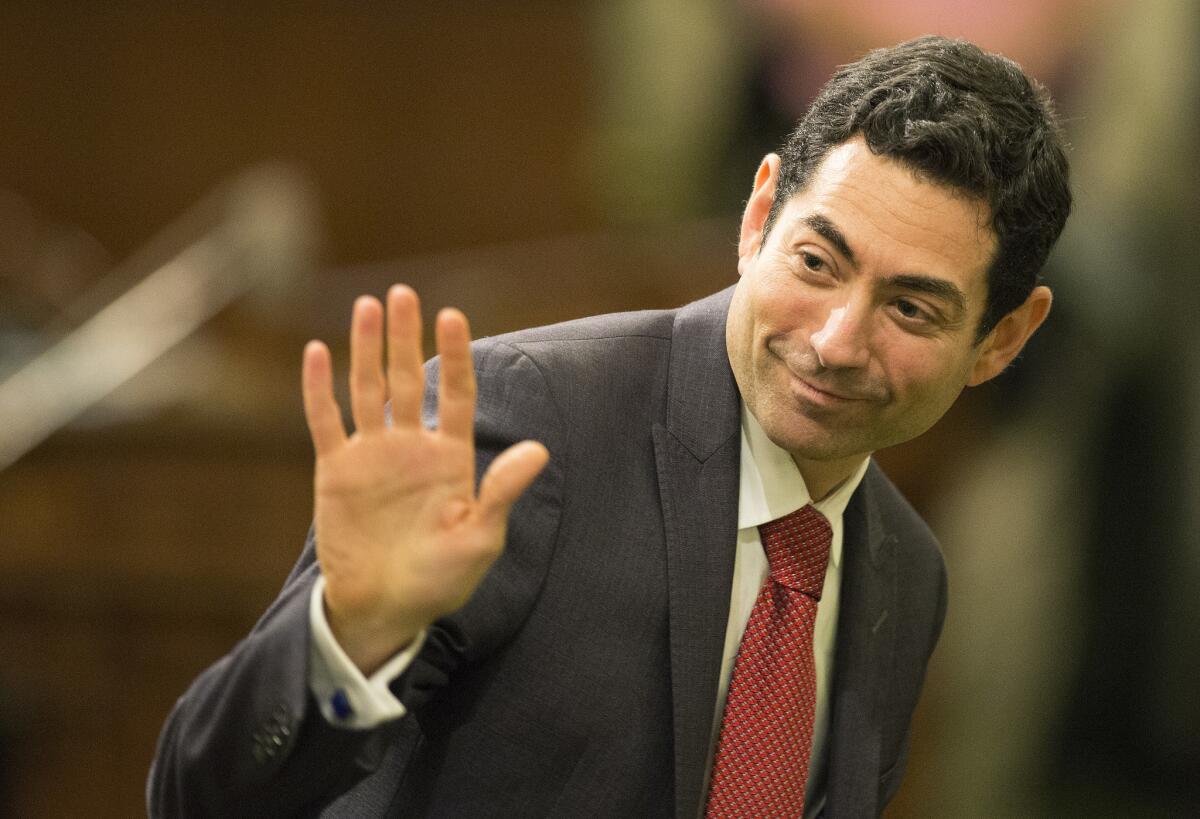California’s top court says public may see government’s legal bills

A government agency’s legal bills for a case that has been resolved are generally public record, a divided California Supreme Court ruled Thursday.
The 4-3 decision reflected tensions between California laws that give the public broad access to government information and historic legal protections for confidential communications between lawyers and their clients.
For the record:
11:49 p.m. Nov. 15, 2024An earlier version of this article omitted reference to Eric Preven, who was a co-plaintiff with the ACLU of Southern California.
“Invoices for legal services are generally not communicated for the purpose of legal consultation,” Justice Mariano-Florentino Cuéllar wrote for the majority. “Rather, they are communicated for the purpose of billing the client.
“And, to the extent they have no other purpose or effect, they fall outside the scope of an attorney’s professional representation,” said Cuéllar, who was appointed to the court by Gov. Jerry Brown.
The three dissenting justices contended the ruling undermined a pillar of California law and might have unintended consequences.
“Following today’s decision, attorneys in this state must counsel their clients that confidential communications between lawyer and client, previously protected by the attorney-client privilege, may be forced into the open by interested parties once the subject litigation has concluded,” wrote Justice Kathryn Mickle Werdegar, joined by Chief Justice Tani Cantil-Sakauye and Justice Carol A. Corrigan.
The case was brought by Eric Preven, an advocate for transparency in local government, and the ACLU of Southern California. They had used the state’s public records act to request copies of bills that Los Angeles County received from outside lawyers defending nine lawsuits charging brutality in the jails.
The ACLU and Preven suspected that the firms were engaging in a “scorched earth” strategy that was costing the county millions of dollars in fees for cases that should have been settled.
The county complied with the request for three lawsuits but argued that the attorney-client privilege protected the others because the suits were still pending.
Communications between lawyers and clients are legally protected from disclosure to ensure openness and frankness.
A trial judge sided with the ACLU and Preven, ordering the county to produce invoices for all of the suits, and the county appealed. A court of appeal sided with Los Angeles, ruling that legal invoices were not public record because they amounted to confidential legal communications.
The court majority agreed that bills for ongoing litigation could reveal a government agency’s legal strategy and should remain confidential.
A sudden uptick in billed hours might tip off an opponent that the agency was preparing a major new filing or reacting to some development in the case, Cuéllar wrote.
But bills for “long-concluded litigation … communicate little or nothing about the substance of legal consultation,” he said.
“The mere fact that an attorney transmitted a communication to his or her client confidentially … does not end the inquiry into whether the communication’s contents are protected by the attorney-client privilege,” said Cuéllar, who was joined by Justices Ming W. Chin, Goodwin Liu and Leondra R. Kruger.
The Times and several other media outlets participated in the case as friends of the court and argued that invoices should be public record.
Twitter: @mauradolan
ALSO
L.A.’s wettest month in years will continue through to New Year’s Eve
How a prominent Southern Calif. Muslim spokesman handled a tweet gone wrong
UPDATES:
3:05 p.m.: This article was updated to clarify that the ACLU of Southern California was seeking the legal bills from Los Angeles County.
This article was originally posted at 1:45 p.m.
More to Read
Sign up for Essential California
The most important California stories and recommendations in your inbox every morning.
You may occasionally receive promotional content from the Los Angeles Times.











